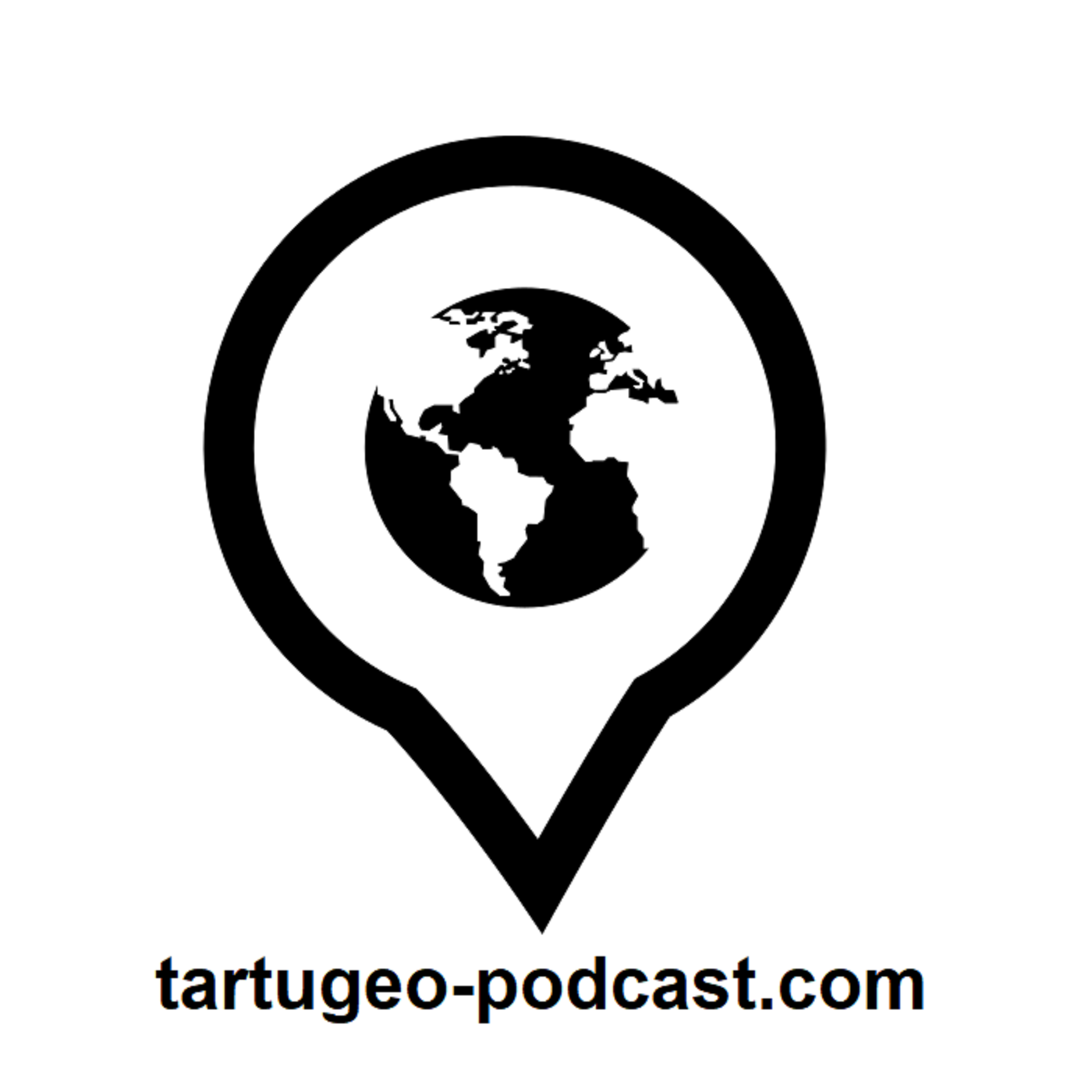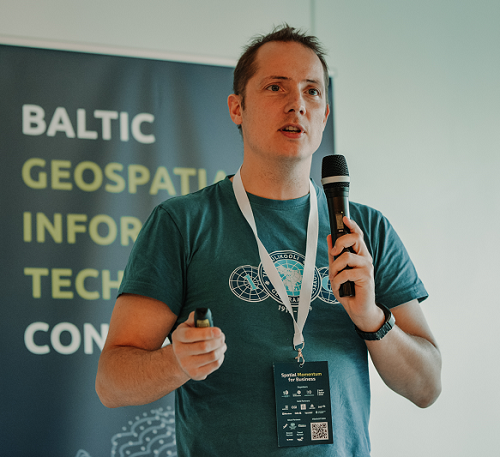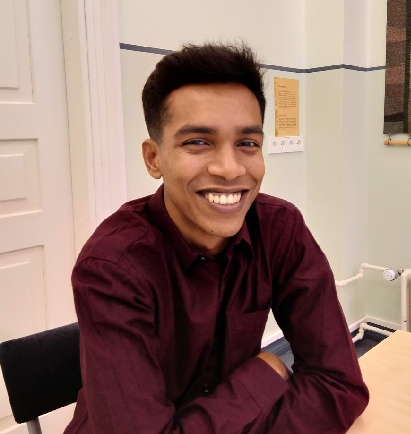E006 - Human Geography and Interview With Kadri Leetma
Posted on Thursday, Mar 5, 2020
Show Notes
In today’s episode we want to continue talking about the Chair of Human geography and regional planning to you. Here with us for an interview we have today Kadri Leetmaa who is the Director of the Centre for Migration and Urban Studies team and Senior researcher in human geography.
Let us give you a short info from the website https://www.geograafia.ut.ee/en/about-us/chair-human-geography-and-regional-planning:
The chair of human geography and regional planning provides education in spatial aspects of functioning of human society, in particular population, culture and mobility, structure of different regions of the world, problems of economy and politics, and regional policy and planning in Estonia and the neighbouring regions. Research is carried out in the same fields. Relations with government agencies and municipalities in Estonian and in neighbouring countries are developed.
The chair of human geography and regional planning have four research labs and work groups:
- Mobility Lab
- Centre for Migration and Urban Studies
- Cultural Geography
- Regional Planning and resource use
The chair is led by Prof Tiit Tammaru. We talked with Tiit in the last episode where he gave us a broad overview about himself and Research and Teaching in Human Geography here in Tartu.
The two main research aspects and collaboration activities related to the Chair of human geography are the Mobility Lab and The Centre for Migration and Urban Studies (CMUS).
Mobility Lab
The Mobility Lab of the University of Tartu focuses on various research topics such as activity spaces, travel behaviour, tourism, segregation, ICT use and environmental impacts for pursuing a deeper understanding of spatial mobility.
In order to gain the best probable understanding of spatial mobility the research group applies both quantitative and qualitative data. One of its main interests lies on the novel methodology based on mobile telephone use, and active and passive mobile positioning data. The latter enables researchers to give a more comprehensive insight into individuals’ activity spaces and spatiotemporal regularities than most of the traditional data sources.
The Mobility Lab is internationally known for its mobile positioning based research and development. In order to discuss theoretical, methodological and empirical aspects of mobile positioning based research and applications in geography and planning, the Mobility Lab organises a biannual conference known as “Mobile Tartu”.
The Mobility Lab has numerous local and international cooperation partners. Its long-term strategic cooperation partner is a spin-off company Positium.
Mobile positioning based methodology is applied in various theoretical, methodological and empirical research and planning projects. Accordingly, the Mobility Lab has focused its research on wide range of societal and environmental topics:
- urban geography, urban development and human activity spaces;
- mobile workplaces and the use of information and communication technologies (ICT);
- ethnic segregation;
- tourism geography, event management and destination marketing;
- seasonality of human behaviour, climate and the impacts of climate change;
- environmental planning;
- ecological footprint and environmental impact assessment;
Centre for Migration and Urban Studies (CMUS):
The Centre for Migration and Urban Studies deals with contemporary challenges facing urban regions such as migration, residential mobility, housing and neighbourhood change, immigrant population. Urban regions are the main drivers of innovation and economic growth, but are also in the forefront when it comes to tackling social and ethnic inequalities. Cities offer the benefit of easy face-to-face contact, which is the prime reason why different people—long-term residents, migrants, and commuters, all with different resources, requirements, abilities, preferences and lifestyles—concentrate here, making cities more and more diverse both socially and ethnically. Centre for Migration and Urban Studies links migration, residential mobility, housing and neighbourhood change (a) to macro-societal factors such as systemic change from state socialism to democratic market economy, welfare systems, housing policy and planning, and (b) to people’s daily activities in different life domains, such as schools, work-life, family, leisure.
Research reading list:
Like usually, we also want to share around 5 or more recent interesting articles on GIS with every episode so that you and we have the idea on what kind of research is going on in the field of GIS:
-
Scientific Data, nature.com | Longitudinal spatial dataset on travel times and distances by different travel modes in Helsinki Region https://www.nature.com/articles/s41597-020-0413-y (open access)
-
European Urban and Regional Studies , Sage Journals | Uneven transformations: Space, economy and society 20 years after the collapse of state socialism https://doi.org/10.1177/0969776409358245 (subscription needed)
-
IJDE - International Journal of Digital Earth, Taylor & Francis | Spatiotemporal event detection: a review https://www.tandfonline.com/doi/full/10.1080/17538947.2020.1738569?af=R (subscription needed)
-
IJGI - ISPRS International Journal of Geo-Information, MDPI | Minecraft as a Tool for Engaging Children in Urban Planning: A Case Study in Tirol Town, Brazil https://www.mdpi.com/2220-9964/9/3/170 (open access)
-
Environmental Modelling & Software, Elsevier | Mainstreaming gender into water management modelling processes https://www.sciencedirect.com/science/article/pii/S1364815219306966?dgcid=rss_sd_all (subscription needed)
-
Earth Science Informatics, Springer | Ten rules to increase the societal value of earth observations http://link.springer.com/10.1007/s12145-020-00453-w (open access)
-
IJGIS - International Journal of Geographical Information Science, Taylor & Francis | Volunteered geographic information research in the first decade: a narrative review of selected journal articles in GIScience https://www.tandfonline.com/doi/full/10.1080/13658816.2020.1730848?af=R (subscription needed)
-
JAG: International Journal of Applied Earth Observation and Geoinformation, Elsevier | Monitoring household upgrading in unplanned settlements with unmanned aerial vehicles https://www.sciencedirect.com/science/article/pii/S0303243419309900?dgcid=rss_sd_all (subscription needed)
Dear listeners, this concludes our episode today. Like everywhere, please like, share and subscribe. We would also be happy if you have some feedback for us. See you in the next episode.
Guests

Kadri Leetma
Kadri is Senior Researcher in Human Geography at the Department of Geography of the University of Tartu. She is leading the working group at the Centre for Migration and Urban Studies (CMUS). Her research topics are Urban social and population geography, ethnic segregation, internal migration, housing mobility and preferences, urban planning, declining cities, and post-socialist cities.
Hosts

Alex Kmoch
Alex is a Distributed Spatial Systems Researcher with many years of international experience in geospatial data management and web- and cloud-based geoprocessing with a particular focus on land use, soils, hydrology, and water quality. His interests include OGC standards and web-services for location-based data sharing, modelling workflows, machine learning, and interactive geo-visualisation. Alex has been involved with SDIs and the OGC for a long time and was recently elected board member of the Estonian Geoinformatics Society (EstGIS) and European Co-Chair for the OGC University Domain Working Group. He is based at the Chair of Geoinformatics and Cartography at Department of Geography of the University of Tartu.

Tahmin Sitab
Tahmin Sitab is a masters student at the Geoinformatics for Urbanised society programme at University of Tartu. He did his bachelors in anthropology from Bangladesh. He is interested in the intersection of sociology and geography and almost every other topic. He firmly believes that you can love both a cat and a dog.